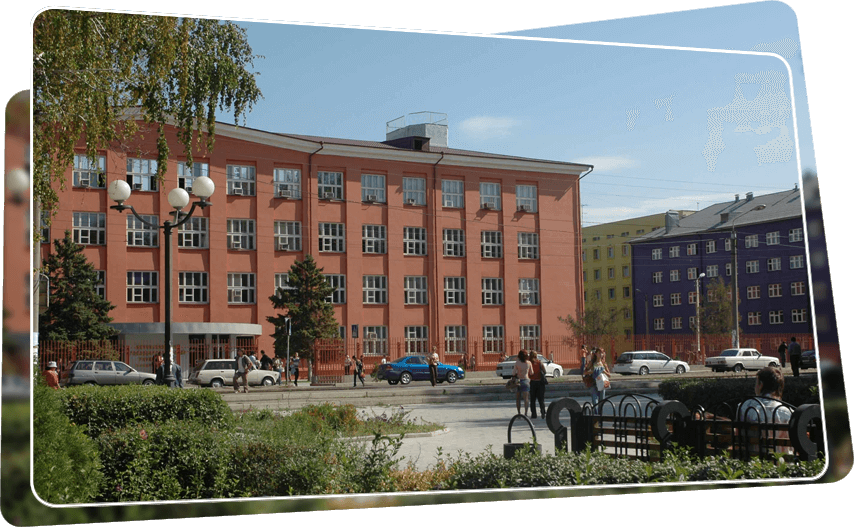
ST. PETERSBURG STATE PEDIATRICS MEDICAL UNIVERSITY
St. Petersburg State Pediatric Medical University is a well-known medical university in Russia, especially focused on pediatrics, which is the branch of medicine dealing with the health and medical care of children.
Key Points
- Location : The university is located in St. Petersburg, one of Russia's largest and most beautiful cities.
- History : It was founded in 1925 and is one of the oldest pediatric medical institutions in the world.
- Specialization : The university is primarily known for its focus on pediatrics, but it also offers training in other medical fields.
- Programs : The university offers undergraduate and postgraduate programs, including degrees like MBBS (Bachelor of Medicine, Bachelor of Surgery), master's degrees, and PhDs.
- Language of Instruction : Courses are mainly taught in Russian, but some programs are available in English for international students.
- International Students : Many students from different countries come here to study, especially for its strong pediatric program.
- Affiliated Hospitals : The university has several affiliated hospitals where students can gain practical experience working with real patients.
- Reputation : It has a good reputation in the field of pediatric medicine and is recognized by medical councils in all over the world.
- Living in St. Petersburg : St. Petersburg is a historic city with rich cultural heritage, and students can enjoy a vibrant city life along with their studies.
- High School Diploma : You need to have completed high school or equivalent education with good grades. In some countries, this would be after 12 years of schooling.
- Subjects : Your high school coursework should include subjects like Biology, Chemistry, and Physics, as these are essential for medical studies.
- Russian Language : Since most courses are taught in Russian, you need to have a good command of the language. If you don’t speak Russian, you might need to take a preparatory course to learn the language before starting your medical studies. .
- Indian student must have to qualified Neet Exam..
- Application Form: You need to fill out the university’s application form.
- Passport : Copy A valid passport is required.
- Academic Transcriptst : You must submit your high school transcripts, showing the subjects you studied and the grades you achieved.
-
Medical Certificatet : A certificate of medical fitness is usually required, confirming that you are in good health to pursue medical studies.
- Passport-Sized Photos : Several passport-sized photographs will be needed.
Admission Process
- Application Submission : Submit your application along with all required documents before the deadline .
- Invitation Letter : If your application is successful, you will receive an official invitation letter from the university, which is necessary for visa application
- Student Visa : Once you receive the invitation letter, you will need to apply for a student visa to study in Russia. This usually involves visiting a Russian embassy or consulate in your home country.
- Tuition Fees : Fees vary depending on the program and whether the instruction is in Russian or English. It’s essential to confirm the exact amount with the university.
- Prepare Documents : Gather all necessary documentation, such as academic transcripts, letters of recommendation, and any required essays or personal statements.
- Stay Informed : Regularly check the university’s website or contact their admissions office for updates on available scholarships and application deadlines.
- Russian-Taught Programs : For programs taught in Russian, the tuition fees are generally lower. On average, these fees range from $3,000 to $5,000 per year.
- English-Taught Programs : For programs taught in English, the fees tend to be higher due to the additional costs of providing instruction in English. These fees are typically around $4,000 to $7,000 per year.
- Russian-Taught Programs : Tuition for postgraduate studies in Russian is usually between $3,500 to $6,000 per year.
- English-Taught Programs : Postgraduate programs taught in English are more expensive, with fees ranging from $5,000 to $8,000 per year.
- Residency Programs : Residency programs, which provide specialized medical training, can cost around $3,000 to $6,000 per year depending on the specialty and language of instruction.
- Medical Insurance : International students are usually required to purchase medical insurance, which can cost around $150 to $300 per year.
- Accommodations : The university offers dormitory accommodation, which typically costs around $500 to $1,200 per year depending on the type of room and facilities.
- Miscellaneous Fees : There might be other small fees for registration, library access, and student activities, which can add up to $100 to $300 per year.
- Currency : The fees are often listed in Russian Rubles, but here they are approximated in USD for convenience. Exchange rates may affect the final cost in your local currency.
- Payment Plans : Some students may be able to arrange a payment plan, where tuition fees are paid in installments rather than a lump sum.
- Fee Changes : Tuition fees are subject to change based on university policies, inflation, and other factors, so it’s essential to check the most current information on the university’s official website or contact the admissions office.
- University Dormitory : Living in a university dormitory is the most affordable option, with costs ranging from $50 to $100 per month. Dormitory rooms are usually shared, and facilities are basic.
- Private Renting : Renting a private apartment or shared flat is more expensive. A one-bedroom apartment in the city center might cost $500 to $800 per month, while outside the city center, it could be around $300 to $500 per month. Shared apartments (with roommates) can reduce the cost to $200 to $400 per month per person.
- Groceries : If you cook at home, expect to spend about $150 to $250 per month on groceries. Prices for basic items like bread, milk, eggs, and vegetables are relatively low.
- Eating Out : Dining at a mid-range restaurant can cost around $7 to $15 per meal. Cheaper options, like student cafeterias or fast food, can be $3 to $7 per meal.
- Public Transportation : St. Petersburg has a well-developed public transport system including buses, trams, and the metro. A monthly transport pass costs around $20 to $3. Single metro rides are about $0.70.
- Bicycles/Walking : Many students prefer to walk or cycle, especially if they live close to the university, which can save on transport costs.
- Utilities (Electricity, Heating, Cooling, Water, Garbage) : For a small apartment, utility costs are usually around $50 to $100 per month. If you live in a dormitory, utilities are often included in the accommodation fee.
- Internet : High-speed internet costs approximately $10 to $20 per month.
- Health Insurance : International students are required to have health insurance, which typically costs around $150 to $300 per year.
- Movies, Concerts, and Museums : A cinema ticket costs around $5 to $10. Entrance to museums and cultural sites can range from $3 to $15. Student discounts are often available.
- Fitness : A gym membership typically costs $20 to $50 per month.
- Clothing and Personal Items : Budget around $50 to $100 per month for clothing, toiletries, and other personal expenses.
- Mobile Phone : A mobile phone plan with data typically costs $5 to $15 per month.
- Low Budget : If you live in a dormitory and lead a modest lifestyle, your total monthly expenses might be around $300 to $500.
- Moderate Budget : For students renting a private apartment and occasionally eating out, the cost could be $600 to $1,000 per month
- High Budget : If you live in a central apartment, eat out frequently, and engage in various leisure activities, your expenses could exceed $1,000 per month.
Visa Requirements
Tuition Fees and Financial Support
Steps to Apply
Tuition fees at St. Petersburg State Pediatric Medical University vary depending on the program, language of instruction, and the level of study (undergraduate, graduate, or postgraduate). Below is a general overview of the tuition fee structure:
Undergraduate Programs (MBBS or equivalent)
Postgraduate Programs (Master’s, PhD, Residency)
Additional Costs
Notes
This overview should give you a good idea of the potential costs associated with studying at St. Petersburg State Pediatric Medical University.
Living costs in St. Petersburg can vary depending on your lifestyle, accommodation choices, and spending habits. However, it is generally considered to be more affordable than many Western European cities. Below is an overview of typical expenses for a student living in St. Petersburg:
Accommodation
Food
Transportation
Utilities
Health Insurance
Entertainment and Leisure
Miscellaneous
Estimated Monthly Budget


This university is an excellent choice for those who want to specialize in pediatrics or other medical fields with a strong emphasis on child health.
Educational Qualifications
Language Proficiency
Application Documents
MBBS Universities
- Volgograd State Medical University
- Stavropol State Medical University
- Peter the Great University
- St. Petersburg State Pediatrics Medical University
- North-Western State Medical University
- Pskov State University
- Pitirim Sorokin Syktyvkar
Documents required for MBBS in Russia
Make sure to keep the documents up to date and get them verified by the ministry of external affairs.
- Copy of 12th standard mark sheet
- Copy of NEET UG Result
- Invitation charges
- Duly filled application form (online or onsite)
- Passport size photos
- Health Certificate
- Photocopy of valid passport
- High school academic transcript
- English proficiency test certificate
- HIV reports and medical insurance by recognized hospital
Eligibility Criteria for MBBS in Russia
The student shall complete the age of 17 years on or before 31st December of the year of admission.
The candidate must secure 50% marks in their 12th standard from Science stream (Physics, Chemistry and Biology) in CBSE / ISC or any other Equivalent Board of Examination
From 2018 onwards, qualifying NEET examination is mandatory for studying MBBS abroad





